Many trainers and experienced dog owners recommend using a crate to potty train your new puppy. This works wonders for many dogs and is the technique that I personally use.
But what do you do when your dog continues to have accidents inside the crate?
Don’t worry! There are solutions to this common conundrum!
We’ve put together a number of tips, tricks, and strategies to help you learn how to stop your dog from peeing in her crate. Read on to learn some of the best ways to put an end to this perplexing problem and help your dog enjoy a dry crate!
How to Stop a Dog from Peeing in the Crate: Key Takeaways
- Some owners find that their dog will pee while inside a crate. This can be a pretty frustrating problem, but it’s not especially uncommon and there are a number of potential solutions you can implement.
- As always, you’ll want to consider potential medical issues first. For example, dogs suffering from bladder infections frequently need to relieve themselves — even if they’re inside a crate.
- Once you know your dog has a clean bill of health, you can move on to training and management solutions. This means doing things like ensuring the crate is the proper size, providing more bathroom breaks, and providing more positive reinforcement when your doggo tinkles outside.
Have other kinds of nocturnal problems? We can help: Check out our guide to stopping a puppy from whining at night!
First Things First: You Have to Crate-Train Your Dog!
If you haven’t even crate trained or potty trained your pup yet, you’ll have to do that first — it’s a prerequisite for putting an end to pee-pee problems!
So, if you haven’t done so already, see our guides on how to crate train your dog and how to potty train your dog.
Your dog needs to be both comfortable in the crate and comfortable alone before we can expect accidents to go away. If she panics when left alone or is otherwise uncomfortable while in her crate, she may urinate out of fear.
When trying to solve crate urination problems, take note of whether or not your dog is having accidents:
- When she is alone but not crated (in which case, you may be dealing with separation anxiety)
- All the time (in which case you’re looking at potty training or medical concerns)
- Just while she’s in the crate (which suggests crate-training or confinement issues)
Identifying the circumstances in which your dog is having accidents will be very helpful in addressing the issue.
Step #1: Rule Out Medical Issues
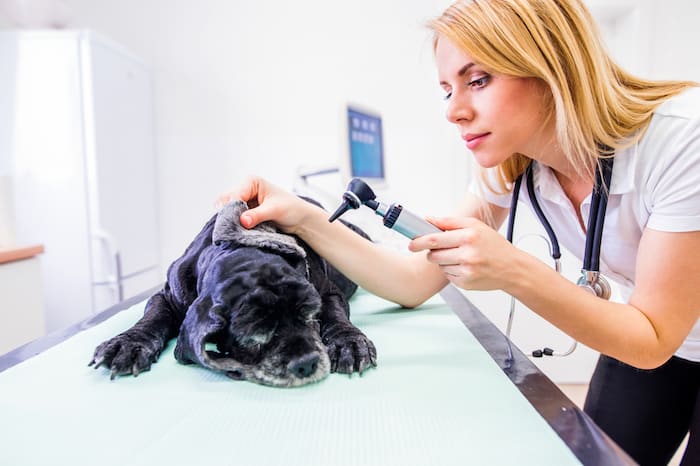
The number one step to take when your dog is peeing in her crate is to make sure she’s healthy. This might sound like overkill, but many cases of tricky potty training come back to medical issues!
It could be that your beloved pup is suffering from a canine urinary tract infection (UTI) or some other medical condition. I have a friend whose dog’s back condition led him to pee and poop in his crate well through his first year of life. A simple checkup or urine test may not catch some of these concerns!
This is especially important to check on if your dog previously was fine in the crate, but is now suddenly having accidents. If your adult, potty-trained, or crate-trained dog starts peeing in the crate out of the blue, don’t waste time with PetMD or internet forums.
Just schedule an appointment with your vet.
But before going in for an examination, take note of the following:
- How often your dog is peeing in the crate
- Any unusual odors associated with your pet’s pee
- Whether or not the urine seems dark or bloody
- Whether or not you’ve changed anything in your dog’s diet
- Any new medications or supplements your dog is taking
- The amount of urine per accident
- If your dog is urinating normally when loose, or only in the crate
Your vet will probably ask you these questions during your checkup, anyway, so you’ll want to be prepared.
Incontinence is especially common in senior dogs, as they’re at higher risk for medical issues. Medical and age issues can also be big contributing factors for dogs who pee while they’re sleeping.
Step #2: Make Sure You’re Providing a Crate of the Right Size

Crate size is a huge part of the process of crate-training, and choosing a crate of the proper size is imperative for house training success.
Crates that are too small are just cruel, and crates that are too large increase the chances that your dog will use one corner for lounging and another corner for peeing.
When working on potty training, your dog’s crate should be large enough for her to lie down, stand up, and turn around comfortably, but it shouldn’t be much bigger at all.
This might seem tiny to us humans who love our space, but it’s the best way to prevent your dog from peeing in her crate. Once you’ve eliminated the potty problem, you can give your pup more space and freedom.
Decreasing the size of your dog’s crate won’t solve urination issues alone: It only helps if you’re also getting your dog out for regular potty breaks.
In many cases, you’re actually better off giving your dog a larger pen area with a designated potty area if you know you’re not going to meet your pooch’s potty schedule. For my puppy, I used a large pet pen with a litter box and pine pellets. He weaned off the litter box in just a few weeks, but it saved me lots of cleaning when he was a little baby or I was ultra-busy!
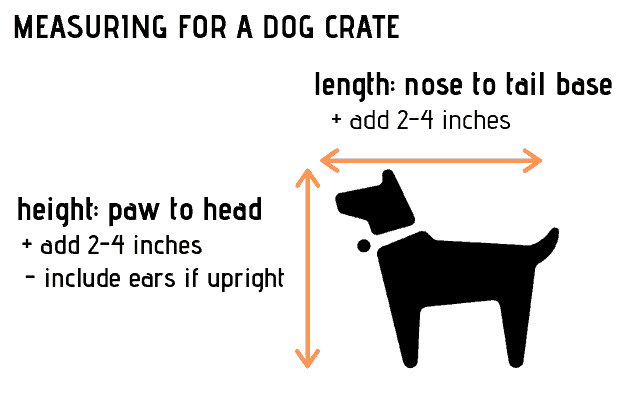
So, once you’ve verified that your pupper is healthy, be sure to consider the size of the crate she’s using. If you think it is too big, consider picking up a new crate in a more appropriate size or blocking off a portion of the crate to (effectively) make it smaller.
While adjusting the size of your dog’s crate is (rightfully) one of the first things dog trainers, canine behaviorists, and vets recommend, it doesn’t always work.
A few of the reasons dogs may still pee in their crate after adjusting the size include:
- Your dog has already made a habit of peeing in her crate. If your dog is already accustomed to peeing in the crate, downsizing might not help. This is why it’s so important to get the right size crate the first time around!
- Your dog was produced by a puppy mill. Dogs that were rescued or purchased from a puppy mill or pet store are morel likely to struggle with peeing in the crate. That’s because they’re used to dividing up a tiny space and using it as a bathroom, since they had to in their previous situation. This illustrates yet another reason to avoid supporting puppy mills!
- Your dog is a small breed. Unfortunately, potty-training problems of all kinds are more common with small dog breeds. There are a number of reasons this is the case, including the fact that they simply have smaller bladders, many hail from puppy mills, and sometimes owners don’t notice accidents as readily as they would with bigger pooches.
The bottom line is that sizing your crate appropriately is important, but it’s not a catch-all.
Step #3: Temporarily Remove the Crate Bedding
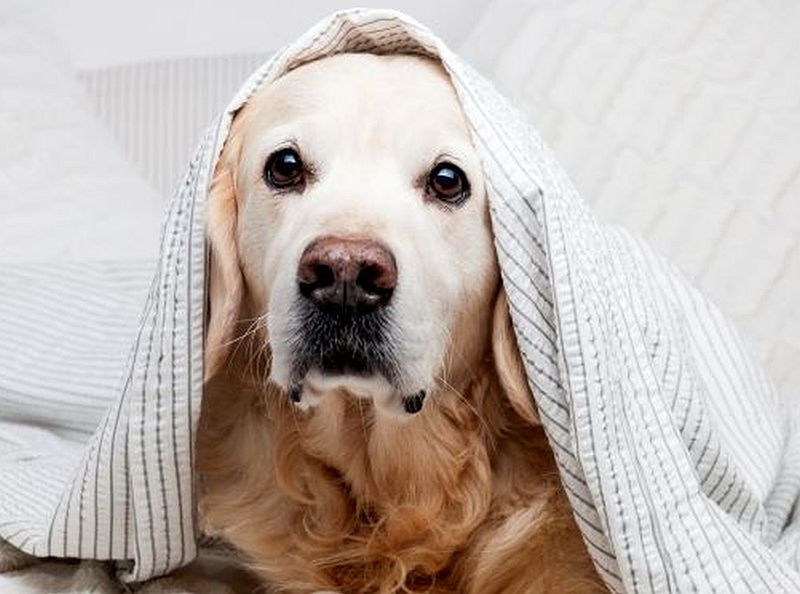
Generally speaking, dogs don’t like to relieve themselves in the same places they sleep, because, eww.
This is part of the reason crate-training is so effective.
But some dogs (particularly those who are hanging out in a crate that is too large) learn that they can tinkle, and then cover the mess with the crate bedding.
From your dog’s point of view, this is a perfect solution — she gets to pee without having to sleep in a puddle afterward.
So, if you notice that your dog is peeing in her crate and she’s pulling the bedding over the urine, you may want to stop including the blanket or crate pad until she stops peeing in her crate.
No, this won’t be as comfortable for her, but it won’t be terribly uncomfortable, either. Dogs commonly lay on hard surfaces (many enjoy sleeping on the kitchen floor), so it isn’t the end of the world for your pooch.
Besides, once you’ve successfully overcome the crate-peeing problem, you can likely start using the bedding again.
Of course, it’s imperative that you’re taking your pup out as frequently as possible and rewarding her for appropriate elimination and that you’re positive she’s healthy before taking this step.
If your pup is peeing in her crate due to a medical issue, inadequate bladder control, or unclear training, it’s not fair of you to remove bedding and make things even more uncomfortable for her.
If your dog simply can’t hold her bladder very long and is having accidents, your best bet is to offer a larger area with a litter box rather than trying to make the situation more uncomfortable. This is why it’s so important to know the difference between potty training (understanding) and a capacity (medical or time-span) problem!
Step #4: Give Your Dog More Bathroom Breaks
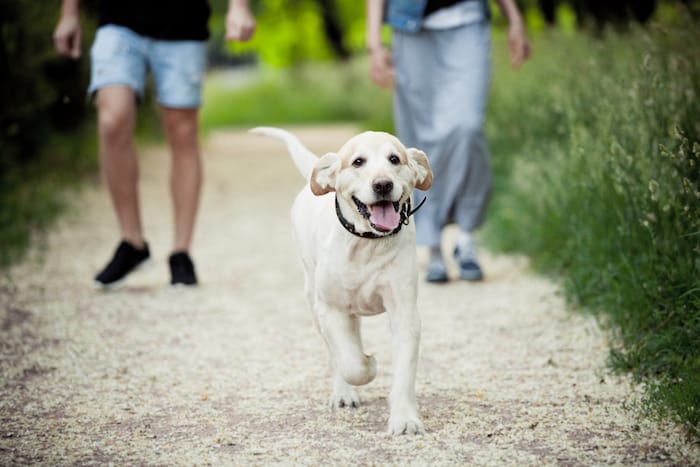
Many dogs that pee in their crates are still puppies or adolescents, while others are simply small dogs.
This means that the majority of crate training problems come from dogs with tiny bladders — puppies don’t yet have fully developed bladders, and small dogs will always have a smaller fuel tank. Small bladders can’t contain pee for very long periods of time; those tiny bladders need to be relieved often.
That’s why punishing your pup for peeing in the crate isn’t a fair option. Your dog wasn’t having an accident for fun or out of spite — it was an accident.
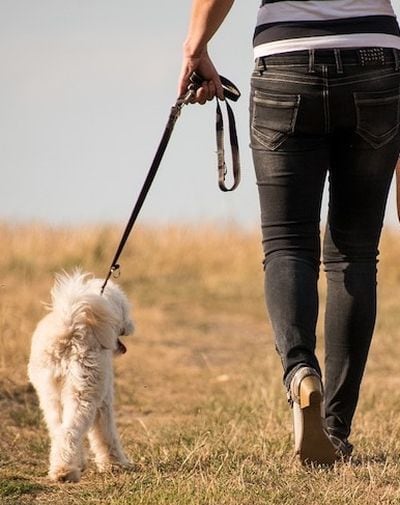
This points to a simple and common flaw in your crate-training regime: your schedule. Simply put, you need to take more potty breaks!
A good general rule of thumb for puppies is that they can hold their pee for their age in months, translated to hours. So, a 6-month old puppy should be able to hold her pee for six hours. Your 6-month-old won’t know automatically that she’s supposed to hold it — you have to teach her!
So, use this as a starting point and make sure you’re giving your pooch bathroom breaks at least this often. But remember: This is just a rule of thumb, and some dogs simply need more frequent chances to potty.
Ultimately, if your dog is struggling with bladder control, try taking your dog out for twice as many potty breaks.
For example, we said above that a 6-month puppy should be able to hold her pee for six hours. But if she’s having accidents, try taking her out every 3 hours instead! I suggest creating a schedule and setting timers on your phone. If this stops your dog from peeing in the crate, then gradually start to increase the time intervals.
We realize it may not always be easy to provide such frequent breaks, so you may need to explore options for letting your pup enjoy a bathroom break or two while you’re at school or work (more on this in a minute).
This months-to-hours rule of thumb about bladder capacity only works if your dog knows that she’s supposed to hold onto her pee!
Dogs do not naturally know not to pee inside. Most will hold their pee inside of an appropriately sized crate, but there are always exceptions. Once again, this illustrates the importance of properly crate-training your doggo at the outset.
Step #5: Adjust Your Expectations
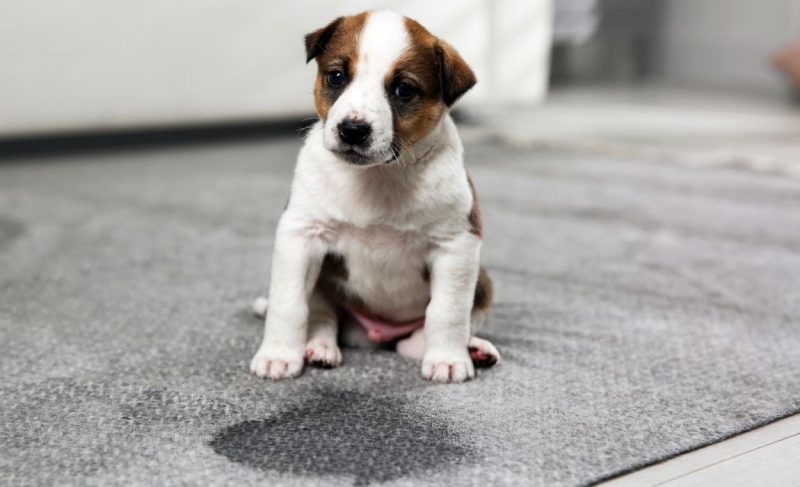
It’s important to know what’s reasonable to expect of your puppy. An adolescent Chihuahua won’t be able to hold her bladder for as long as an adult Labrador will — so don’t expect her to.
Keep in mind the general once-per-hour-per-month rule, but this only works up to about 8 hours or so. Some dogs can’t even go that long. I know plenty of small adult dogs who simply can’t hold their bladders for longer than even 5 or 6 hours.
If you’re routinely pushing your dog past her limits, you’re setting everyone up for failure.
Step #6: Use More Treats to Reinforce Good Pee-Pee Habits
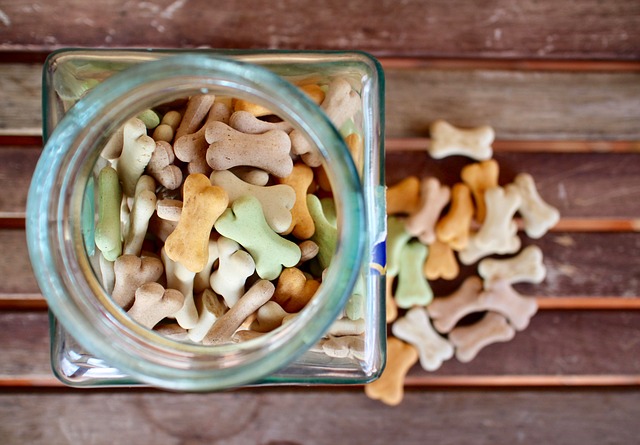
What do you do when your dog exits the crate? Do you just open up the screen door, let her do her business, and call her back inside for dinner?
If so, there’s a good chance that your dog still doesn’t fully understand that she’s supposed to cash in her pee for payment. When she exhibits a desirable behavior (peeing outside, in this case), you need to reward her!
While you’re struggling with potty issues, it’s imperative that you follow your dog around outside until she pees and reward her for a job well done.
Just understand that you must reward her immediately with some high-quality training treats. If you wait until you’re back inside, she probably won’t make the connection between going outside and earning a reward.
So yes, this means carrying treats with you whenever you go outside (a handy treat pouch will make this much easier).
If you implement these rewards reliably, you might start noticing that your dog tries to fake you out and squat for treats. That’s fine. She’s really catching on if you start to see her trickery!
But don’t let it fool you, either: Wait until she actually starts peeing before rewarding her.
I still do this with my adult dog — potty training is really important to me. Although I don’t carry treats with me as religiously as I do with a new puppy, I still like to pay my dog for peeing outside. This is especially helpful since I’m training my dog to go to the bathroom on command.
Step #7: Film Your Dog For Behavioral Concerns
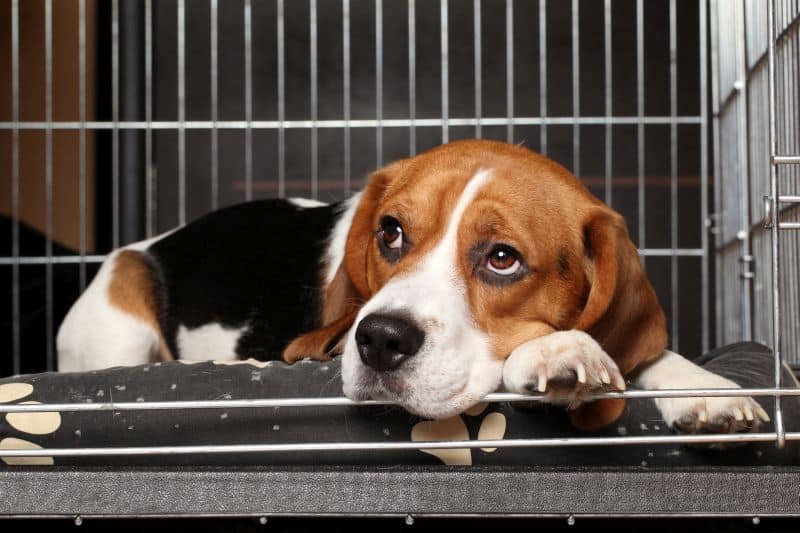
One of the most concerning reasons for a dog to pee in her crate is separation anxiety or isolation distress.
At Journey Dog Training, I often ask my clients to set up a video camera (you can use your phone, laptop, or a fancy dog camera that even shoots out treats) to see if the dog is suffering from some kind of extreme anxiety that is resulting in urination.
Set up your spy-cam and watch your pooch while you’re gone. If she normally doesn’t have an accident unless you’re gone for more than 30 minutes, then make sure you watch her for more than 30 minutes.
Many folks set up cameras as in the video below to see what their dog is up to during the day. This dog’s activity is fairly normal, but some owners may witness their dogs expressing extreme anxiety.
A few of the signs that may indicate your pooch is suffering from separation anxiety or isolation distress include:
- Digging or chewing at the crate
- Crying or barking for more than a few minutes
- Panting even if it’s not hot
- Pacing
- Licking herself excessively
You probably want to speak with a behaviorist if it looks like your dog spends more than half of her time doing things other than sleeping or playing with her toys. If your dog isn’t relaxed enough to sleep or play, she’s probably very stressed by being alone. Crate peeing is a common side effect of this type of distress.
Understand that your dog is not peeing in her crate because she’s mad at you. She’s not trying to get back at you or express her displeasure at being left alone. She’s scared and upset, or she doesn’t understand the rules.
Separation anxiety and isolation distress are really, really tough problems to crack and they often require professional assistance. So, speak to a certified dog behavior consultant or reputable, force-free trainer if you think that your dog struggles with either of these problems.
And this illustrates one of the most important reasons to avoid punishing your dog for accidents — she is not doing it maliciously.
Need Faster Relief? Renovate Your Crate!
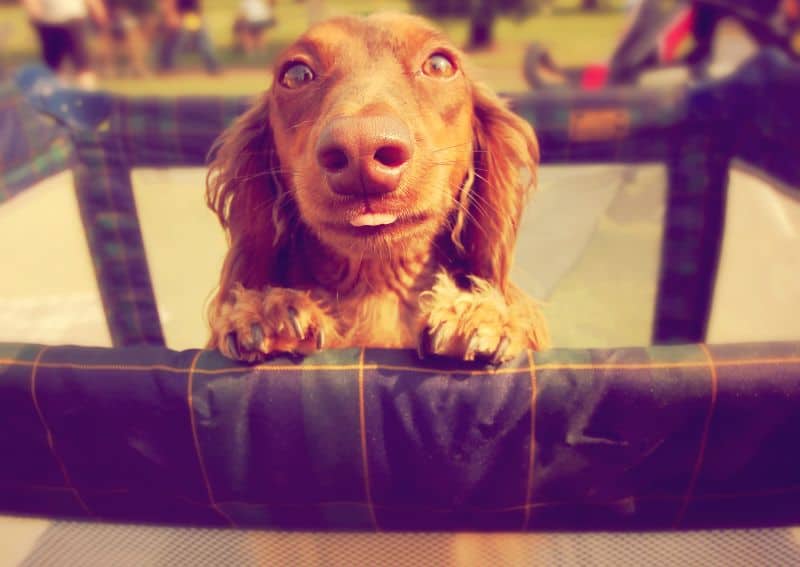
Crate training can be a high-pressure endeavor. If your pup does have an accident, it’s extra messy and unpleasant for both you and your dog.
When I am potty-training puppies or foster dogs, I no longer rely on a crate (I used to)!
Instead, consider a Puppy Palace. Using a large pet gate (I like the Carlson Pet Products locking yard), create a dog-proofed area with a comfy bed inside a crate, toys, chew toys, water, and a litter box.
Your pup will slowly start to crate-train herself by choosing to sleep in the extra–comfy bed in the crate. But if she needs a potty break, she can take herself to the litter box. This means no more baths, endless laundry cycles, or even infections from lying in her own urine.
With most dogs, I use grass or pine pellets for the litter box. Most dogs will quickly gravitate towards the absorbent option.
As your dog gets more comfortable in your home and you reward her heavily for peeing outside, you’ll be able to wean her off the litter box. With most dogs this takes less than a few weeks.
Renovating the crate is a more humane and practical option if you expect accidents will happen, rather than stubbornly insisting that you and your pup deal with the mess of peeing in the crate!
When All Else Fails, Consider Management Solutions
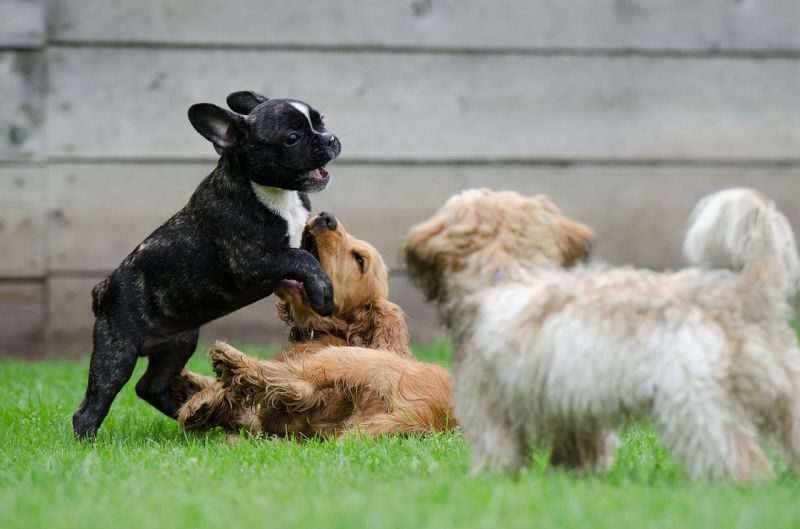
If you’ve tried all of the above steps and are still struggling with how to stop your dog from peeing in her crate, it’s time to consider management options — things you can do to help mitigate your pup’s pee-pee problemo.
While these options won’t fix the core problem of peeing in the crate, they will help reduce your daily cleaning duties and keep your dog happier! Who wants to come home to a sad, pee-covered dog every day?
You might want to explore other options beyond leaving your dog in their crate if:
- Your dog is a small breed or a puppy and you work long hours. Remember that your pooch might simply be unable to hold her pee for as long as you’re gone.
- You suspect your dog suffers from separation anxiety or isolation distress.
- Your dog has a medical issue that’s causing the accidents. You might need some other options while she heals up, or the health issues might be an ongoing lifelong issue.
- Nothing else is helping to stop your dog from peeing in the crate.
There are lots of options beyond leaving your dog in her crate all day. Some options will work better for some dogs. For example, getting a midday dog walker won’t help if your dog’s crate is too big and she doesn’t understand the concept of potty training yet.
So, here are some of your options for dogs who simply won’t stop peeing in their crate:
- Enroll your pooch in doggie daycare. Doggie daycare will provide your pupperino will get plenty of exercise and social interaction, coupled with regular potty breaks. Doggie daycare does have its downsides, though. It can be expensive, and some doggie daycares are better than others. It’s also a poor option for dogs who’re ultra-shy, have very high energy levels, or are aggressive or reactive. Be sure to shop around to find an option that works for you, your budget, and your dog!
- Use potty pads and a doggie playpen. Another option for dogs who won’t stop peeing in their crate is to set up a solid potty pad and playpen setup. Teaching your dog to use potty pads is a great option for young or small dogs if you can’t afford doggie daycare. The basic idea is to use the pen to keep your dog in one general area of the room, while also giving her a place to pee that’s easy for you to clean up. This approach won’t stop the peeing problem, but it does give your dog an appropriate place to go while she’s home alone.
- Hire a dog walker. There are so many options available for dog walkers, it’s hard to keep track. I’ve personally used local college and high school students, as well as services like Wag!, Rover, and HikeDoggie — different dog-walking services all have various pros and cons, so be sure to select one that works for you and your pooch.
K9 of Mine readers can get $15 off their first dog walking or sitting service with Wag!
These types of services are great for dogs that don’t do well at daycare. Dogwalkers can take your dog out once or twice a day, giving a much-needed potty break to dogs who just can’t hold it long enough for you to come home.
***
It can be tricky to stop a dog from peeing in a crate, we encourage you to try the tips and tricks detailed above. And if all else fails, simply opt for one of the management solutions we’ve provided.
But we’d also like to hear your success stories! What has worked for your dog? How did you get your four-footer to stop peeing in her crate? Let us know in the comments below!

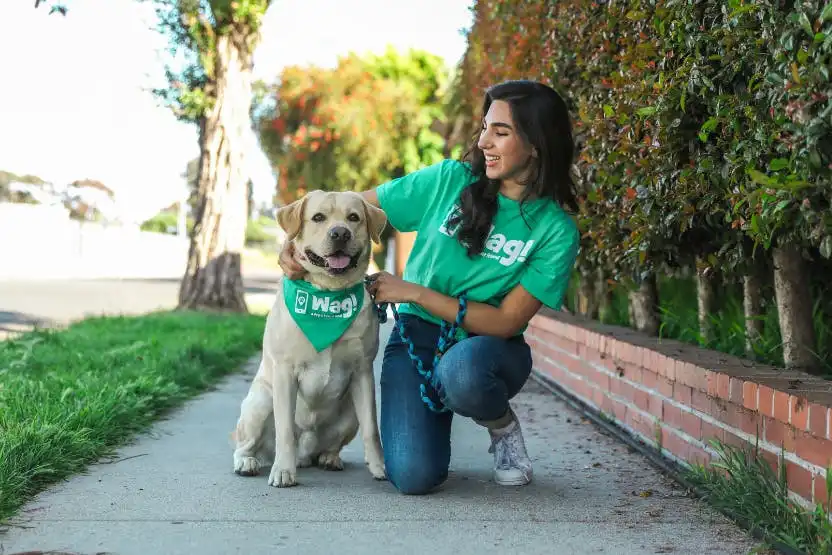




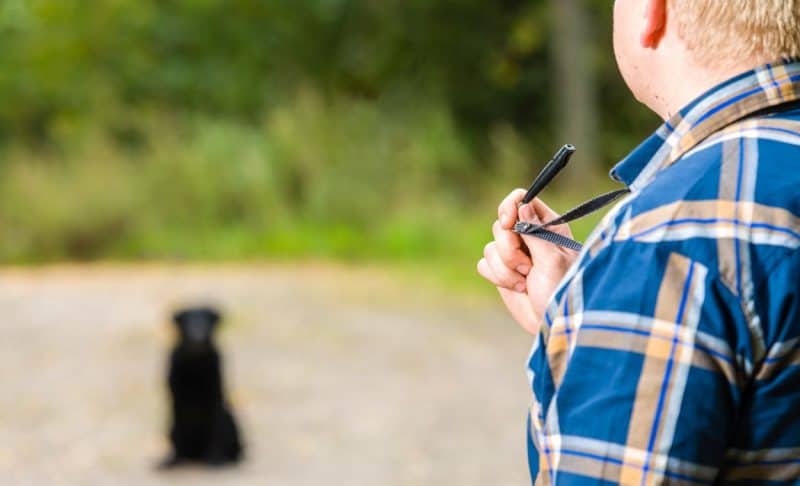
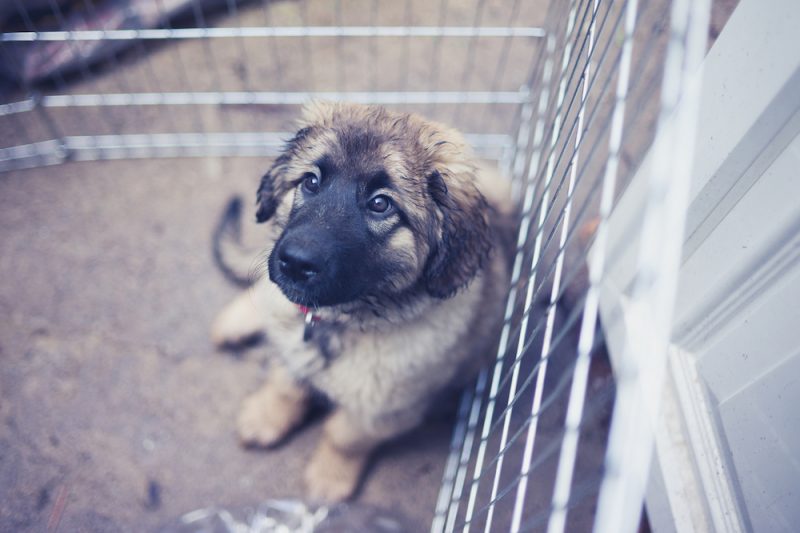

Leave a Comment